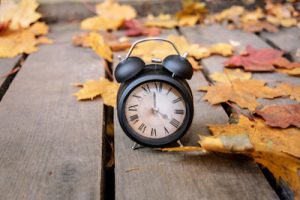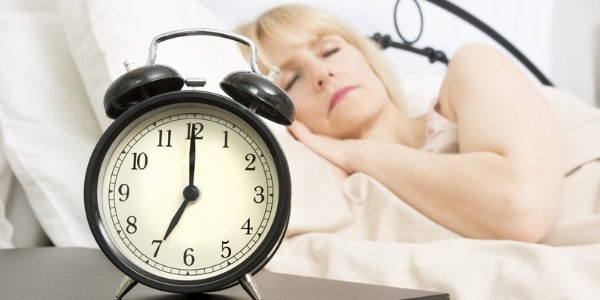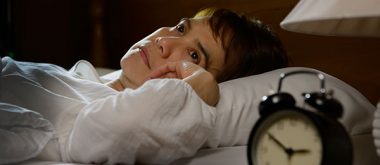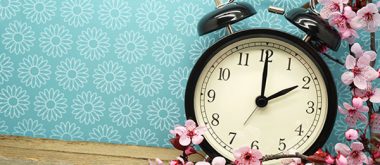The end of a phenomenon known as daylight-saving time might adversely impact a woman’s sleeping patterns, especially during menopause. For this reason, it is important to know which methods may help to improve sleep quality.
Daylight-Saving Time
This time cycle begins during the spring. It is at this time that clocks are turned ahead one hour. However, the period ends during the fall, typically in early November, and signals turning the clocks back an hour.
Effect on Women’s Health
Though people gain an hour of sleep when the clocks are turned back, or when we “fall back,” the effect is not always a positive one. This interruption in time continuity can precipitate sleep disturbances for some. Researchers opine that this is particularly true of “light sleepers” (persons who sleep for less than seven-and-a-half hours per night).
It is suggested that the end of daylight-saving time can interfere with the regular sleep schedules of many. In many cases, interrupted sleep schedules linger for several days. However, for others, the problem can remain for weeks.
Issues Disrupted Sleep Can Precipitate
Individuals who experience interrupted sleep patterns could be susceptible to numerous health problems such as a weakened immune system and cognitive issues like memory loss and concentration difficulties. However, a chronic lack of rest might elicit serious medical issues including high blood pressure, cardiovascular disease, significantly decreased libido, depression and premature aging.
The Connection Between Sleep Loss and Menopause
Menopause is a naturally-occurring life event during which a woman’s reproductive system gradually ceases production of sexual and reproductive hormones. This event will culminate in the individual’s inability to conceive children or give birth.
Menopause precipitates numerous untoward symptoms. Many of these physical manifestations tend to occur during the nighttime hours: insomnia, sweating and hot flashes, to name a few. Those impacted by the end of daylight-saving time might experience an exacerbation of the symptoms. Such an event could trigger greater discomfort and a potential for declining health.
Menopausal women might have a more adverse reaction to the conclusion of daylight-saving time for several reasons.
Treatment Options

They might enjoy longer, more productive sleep by practicing the following tips:
- Wear Looser, Moisture-Absorbing Clothing – Since numerous menopausal women are kept awake from excessive body heat and subsequent perspiration, donning clothing that is cooler and better at soaking up any existing wetness may go a long way toward helping the individuals rest for extended durations.
- Lower Room Temperatures – Afflicted women might sleep with greater efficacy by lowering the thermostats in their bedrooms several degrees.
- Avoid Caffeine or Alcohol Near Bedtime – The stimulating properties of caffeine are notorious for keeping those who drink caffeinated beverages like coffee, tea or soda up well past their bedtimes. Additionally, though alcoholic beverages might be somewhat relaxing, their diuretic effect could precipitate unwanted trips to the restroom during would-be slumbering hours.
- Exercise – Physical activity at some point during the day often precipitates a greater degree of tiredness during the evening hours. That said, healthcare professionals caution individuals not to exercise too close to bedtime as such practice could increase one’s chances of experiencing insomnia.
- Consider Hormone-Replacement Therapy – In circumstances where sleep problems or other menopause-related symptoms are severe, women may find relief through the administration of hormone-replacement therapy (HRT). This form of treatment comes with certain health risks. Therefore, HRT is often only used as a last resort.





